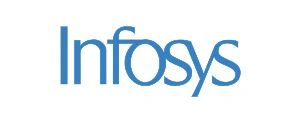1. Understand the Fundamentals of the Oil & Gas
Industry
Why It’s Important:
A solid understanding of the oil, gas, and rigging industry is crucial for success in
the field.
This includes learning about exploration, production, refining, distribution, and marketing.
Tips:
- Study industry reports and global trends in energy markets.
- Stay updated with news from organizations like OPEC, BP, Shell, and ExxonMobil.
- Learn about the upstream, midstream, and downstream sectors of the industry.
2. Master Safety and Compliance Regulations
Why It’s Important:
Rig operations involve high-risk environments, and compliance with international safety
standards is essential.
Tips:
- Familiarize yourself with OSHA (Occupational Safety and Health Administration)
standards.
- Understand environmental regulations such as the EPA (Environmental Protection
Agency) guidelines.
- Take industry-recognized safety certifications like NEBOSH or HSE.
3. Develop Strong Leadership and Teamwork Skills
Why It’s Important:
The oil and gas sector relies heavily on teamwork, requiring effective leadership skills to
manage rig operations smoothly.
Tips:
- Participate in group projects to develop collaboration skills.
- Take leadership roles in university or industry-related organizations.
- Learn conflict resolution and decision-making strategies for
high-pressure
situations.
4. Gain Hands-On Experience Through Internships
Why It’s Important:
Practical experience in rig operations enhances your skills and boosts employability.
Tips:
- Apply for internships with top oil and gas companies.
- Gain field exposure through industry visits and hands-on training.
- Work on real-world projects related to offshore and onshore drilling operations.
5. Enhance Technical and Engineering Knowledge
Why It’s Important:
While a Rig BBA focuses on management, understanding the technical aspects of drilling
and rig machinery is equally important.
Tips:
- Learn about rig components like derricks, drill bits, and blowout preventers.
- Understand different drilling methods such as rotary drilling and directional
drilling.
- Take additional courses in petroleum engineering or mechanical systems.
6. Stay Updated with Emerging Technologies in the
Industry
Why It’s Important:
The oil and gas industry is constantly evolving, with new technologies improving efficiency
and safety.
Tips:
- Research the role of automation, AI, and IoT in rig operations.
- Understand digital twin technology and predictive maintenance.
- Follow industry leaders and organizations for tech innovations.
7. Build a Strong Professional Network
Why It’s Important:
Networking helps in securing internships, learning from industry experts, and gaining job
opportunities.
Tips:
- Attend oil and gas conferences and networking events.
- Connect with industry professionals on LinkedIn.
- Join professional organizations like SPE (Society of Petroleum Engineers).
8. Improve Financial and Business Acumen
Why It’s Important:
Understanding financial management in the oil and gas industry is key to making
informed business decisions.
Tips:
- Learn about cost structures, revenue models, and investment analysis in energy
markets.
- Understand the impact of oil price fluctuations on business strategies.
- Study financial reports from major oil companies.
9. Learn Crisis Management and Risk Assessment
Why It’s Important:
Rig operations involve high-risk environments, making crisis management a critical
skill.
Tips:
- Understand emergency response planning and disaster management.
- Learn how to conduct risk assessments for rig operations.
- Train in hazard identification and risk mitigation strategies.
10. Maintain Work-Life Balance and Mental Resilience
Why It’s Important:
Rig professionals often work under extreme conditions. Building resilience and maintaining a
work-life balance is essential.
Tips:
- Develop stress management techniques.
- Engage in hobbies and relaxation activities during breaks.
- Stay physically fit to handle the demanding nature of offshore and onshore work.
Application Process
1
Visit the official SRMU
website.
2
Fill out the application
form with
personal details.
3
Upload necessary
documents (mark
sheets, ID proof, passport-sized photographs).
4
Pay the application
fee (if
applicable).
5
Appear for entrance
exams/interviews
(if required).
6
Confirm admission
by submitting the required fees.
Frequently Asked Questions (FAQs)
Rig BBA is a specialized Bachelor of Business Administration
program designed
for the
oil and gas industry. It focuses on business management, safety
regulations,
supply chain
management, and energy economics, unlike a regular BBA, which
covers general
business
principles.
Career options include:
- Rig Manager
- Supply Chain Analyst in Oil & Gas
- Energy Consultant
- Operations Manager in Drilling Companies
- HSE (Health, Safety, and Environment) Officer
Yes! A Rig BBA focuses on the business and management aspects
of the oil and gas
industry. While an engineering background is helpful, it is not a requirement.
Students can
take additional technical courses to supplement their knowledge.
- Apply to major oil companies such as BP, ExxonMobil, Chevron, and
Shell.
- Use LinkedIn and professional networks to connect with recruiters.
- Join industry-related student programs and competitions.
Some valuable certifications include:
- NEBOSH (Safety and Risk Management)
- HSE Certification
- Oil & Gas Management Certification
- Project Management Professional (PMP)
Yes, many universities offer globally recognized Rig BBA
programs, and graduates
are
sought after in international markets.
- Leadership & teamwork>
- Risk assessment & safety compliance
- Financial and business acumen
- Technical understanding of rig operations
- Follow industry journals such as Oil & Gas Journal, Rigzone, and
Offshore
Technology.
- Subscribe to newsletters from energy market research firms.
- Participate in webinars and networking events..
Conclusion
A Rig BBA provides students with the necessary knowledge and skills to excel in the
oil and
gas industry. By following these best practices, tips, and strategies, you can
enhance your
academic performance and career prospects. Whether you aim to work on offshore drilling
projects or lead business operations in energy companies, mastering these essential skills will
help you thrive in the rig industry.
Who Should Attend?
- Finance professionals in the corporate sector with minimum two years’ relevant
experience seeking to develop their careers in Corporate Finance will find this programme most
useful.
- Executives in the Banking and Financial Services sectors will find this programme
beneficial before taking on specialised responsibilities.
- Professionals who have just completed their studies in Finance, Commerce, or
Accountancy, will add recent advanced concepts and application areas to their knowledge base.
- The programme would also be relevant for professionals working (or planning to
work)
as broking/security analysts, consultants, and chartered/cost accountants.
Eligibility Criteria
- Bachelor’s Degree (10+2+3 or equivalent) or Diploma (10+2+3) or Master’s Degree
or
equivalent in any discipline with 50% marks are eligible for this IIM Calcutta Applied Finance
programme.
- Candidates should be working and should have a minimum of TWO years of relevant
work
experience post completion of qualifying education.*
*Internships and Training Experiences will not be considered full-time work experience.
Admission Criteria
- Eligible candidates will be selected for this IIM Calcutta Applied Finance
programme
on the basis of assessment of educational and professional background and motivation based on
the
application form submitted.
- Senior applicants with experience will be preferred.
- Final selection will be done by IIM Calcutta.

 Programme Start Date: 13th November 2024
Programme Start Date: 13th November 2024
 Certificate from IIM Calcutta
Certificate from IIM Calcutta
 Direct-to-device
Direct-to-device















